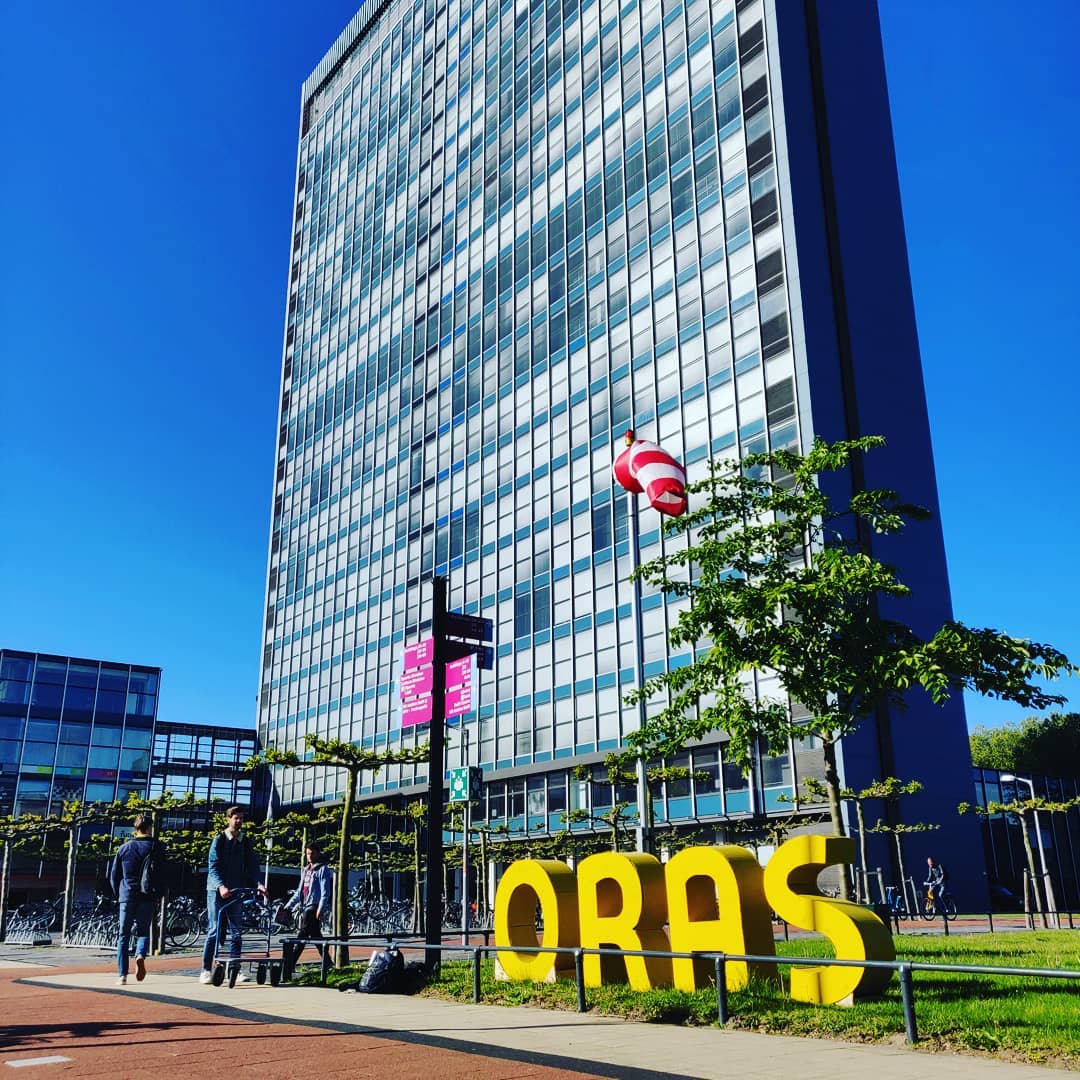The corona crisis is squeezing consultation with university students, writes the HOP press agency. Delta investigated the extent to which this is happening at TU Delft.
The elections for the student council are about to start (Photo: Oras)
Are we looking for online alternatives for all exams or are we going to postpone some of them? And when will we stop teaching online? The corona crisis is pushing boards at universities and universities of applied sciences to take radical decisions quickly. According to the Hoger Onderwijs Persbureau (HOP, higher education press agency), student councils are not always sufficiently included in the decision making process.
“The one university of applied sciences involves student participation in everything, while the other says that we are in a crisis so you have no input at the moment,” asserts Karl van der Linde of the national Studenten Overleg Medezeggenschap (SOM, student participation council) for higher professional education.
Daan Bos of the Landelijk Overleg Fracties (LOF, student advocacy body) said to the HOP that this is no different at universities. The LOF is the counterpart of SOM in university education. “It depends entirely on who you are talking to.”
Not at the crisis meeting
At TU Delft too things are working differently, say Lijst Bèta and Oras. The two student parties jointly form the Student Council. Not only do they now only meet digitally, but they now also only meet the Executive Board digitally or through telephone calls. “We really had to find our way at first, but it’s now going really well,” said Lijst Bèta.
The Student Council does not attend TU Delft’s crisis team meetings, but it does have a weekly meeting with Vice Rector Magnificus Rob Mudde which someone from the crisis team also attends. Zara-Vé van Tetterode, Chair of the Student Council and Oras, does not believe that her student representation has been reduced since the corona crisis. “But our involvement is different,” she says. “Decisions have to be taken very fast. In some instances, we are only informed of something and in others we have the chance to discuss it.”
She sees that corona has caused major shifts in the issues at play. Take examinations for example. “Before the corona crisis we thought that it may be an option to see if exams could be done online. But now all exams have to be done online so how can we make sure we organise them as well as we can?” Another issue is student welfare, which is now on the agenda in a different way than before. “It’s entirely ‘corona welfare’ now.”
First online meeting
Last week the Student Council met for its first official online meeting with the Executive Board. “It went well,” says Van Tetterode. “For example, we made the point that the exam period was chaotic and that many students are facing financial problems or extra stress.”
The Interstedelijk Studenten Overleg (ISO, Intercity Student Consultation) is equally rooted in student councils and is positive about developments. “At the start of the crisis we made the clear case that rapid decision making should not come at the cost of bypassing student participation,” says ISO Chair Kees Gillesse. “Board members have a duty to inform and councils must respond quickly. This can be difficult at times, but we are slowly seeing that this process is going better.”
But he does believe that universities and universities of applied sciences should do more to inform students where they should go for support if they experience study delays. At TU Delft, this is the Profiling Fund. “Few students know this. If your degree programme is ‘unstudyable’, you can receive compensation. Even if everyone does their best, some students will face problems.”
Next week, the TU Delft Student Council will meet digitally with the Works Council in attendance. “We will then discuss student participation, so I am curious to see what comes of it.”
(HOP, Bas Belleman/Delta, Annebelle de Bruijn)



Comments are closed.